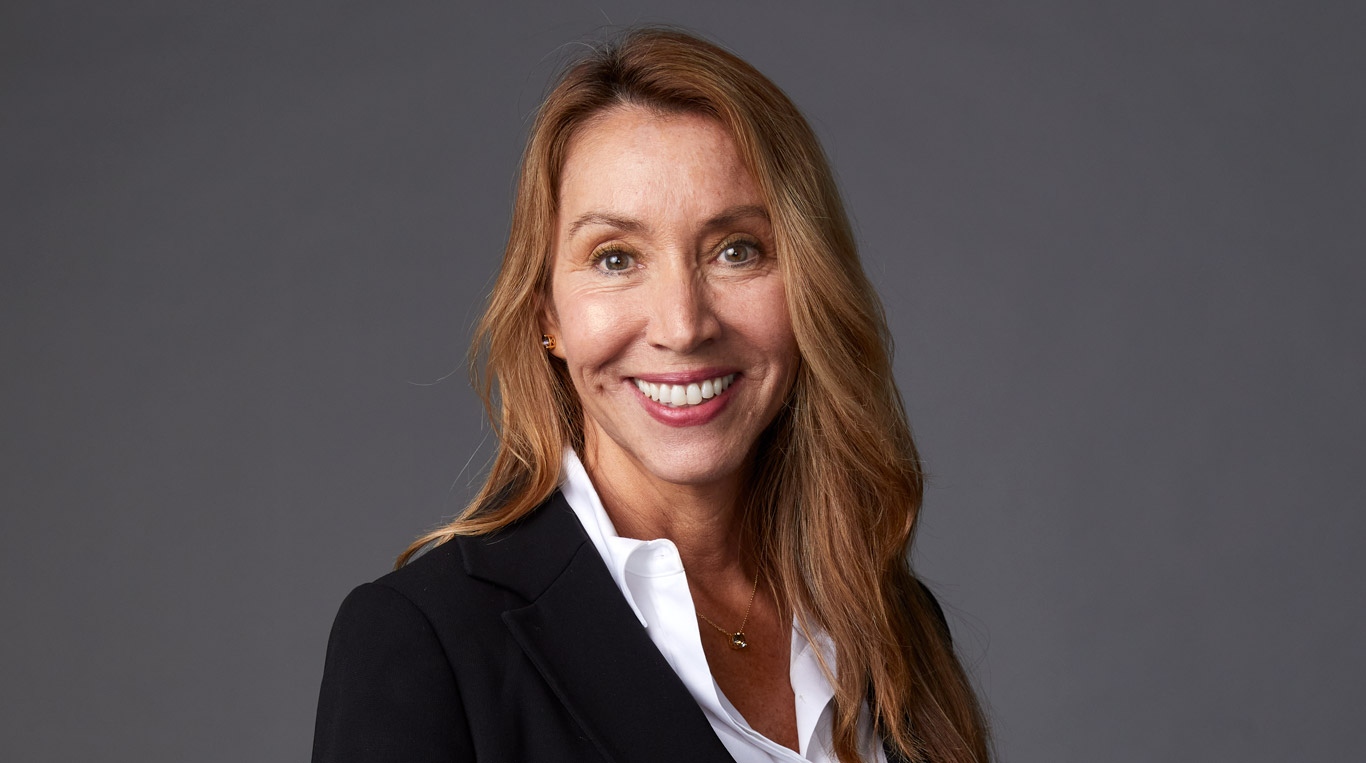Kellogg Leaders in action: Learn to trust your intuition

What makes Kellogg unique? In a rapidly changing world, we provide our students with fertile soil for fruitful leadership. Our students are planting seeds to become the leaders of tomorrow, and our community supports and challenges their growth. Whether in the classroom or through global opportunities, our MBA programs sharpen analytical skills while fostering creativity and social intelligence.
Our “Kellogg Leaders in action” series highlights adaptive, empathetic leaders who are changing the global business landscape.
Meet, Los Angeles-based Yolanda Macias ’92 MBA, the chief content officer for independent entertainment studio Cinedigm. She explains how her choice to pursue a Kellogg MBA where she gained a well-rounded skill set and the ability to pivot in a new professional direction made her career possible. Macias sat down with us to reflect on how her classes and the “joy” of a supportive alumni community have helped her reach new heights.
Why do you think it’s so easy to pick Kellogg alumni out of the crowd?
Kellogg Leaders are high impact and low ego — and that doesn’t mean without confidence. It’s this idea of understanding while you may be a strong contributor, ultimately your product or service is going to be far more compelling with many people contributing. You can be the leader, but it’s much better to have representation across the organization to bring forth a higher-quality product.
What do you personally think it means to be a Kellogg leader?
Being Kellogg Leader, from my perspective, is not just about representing the skills and understanding you’d expect coming out of a prestigious MBA program. It’s also about having a responsibility to lead and develop others. I’m a woman and I’m a person of color, and I bring women up through the organization and make room for them.
How have you used your Kellogg leadership skills in your own career?
I was an investment banker right out of undergrad, and I wanted to come back to school and get my MBA from a school that was well-rounded — that emphasized a variety of areas and really leaned into marketing, along with finance and organizational behavior. What I learned was how to approach conflict and problems by gathering information and data, but also by identifying what’s the noise and what’s important. I learned how to find simplicity. To come to a proposal that has heard all the other constituents and results in a recommendation that solves the issue in a decisive way.
Is there an MBA course that you still think about today?
Negotiations. It really helped to open my eyes to understanding the other person’s point of view. I remember an exercise in which we had to write down something we were passionate about, and then negotiate the opposite point of view. That helped me become a much more effective negotiator by listening and then using what I heard as my counter so that it feels as if — and hopefully it is — a win-win proposition. I use that hard skill of negotiations every day in my life, even beyond deal-making. It’s negotiating for yourself, for your team and with customers and suppliers.
What advice would you give to your younger self back when you were considering coming to Kellogg?
Trust your intuition. I did just that, but I was nervous because I am a native Angelino. I had an opportunity to either stay in a program that had similar general coursework or come to Chicago. I already knew the weather would not be similar. And I didn’t know anyone here. But I trusted my intuition and came; it was the best decision I could have made. I continue to rely on my intuition throughout my career, and it’s something that becomes second nature as you gain confidence. It’s definitely a trait that is critical when you are making decisions.
What does it mean to you to be a part of the Kellogg alumni community?
When I think of what it means to me in one word, it’s joy. It’s a special situation to be an alumna in a community with like-minded people who take it seriously, in a fun way, and are willing to give back. Everyone gives back in different ways, and I’m proud to be part of the community. I feel a responsibility as a Kellogg Leader.
I met five friends at Kellogg with whom I’ve remained close, and we’ve seen one another every year except for COVID or when somebody was having a baby. In some cases, we went to their hometown so that we could still see one another. That friendship and support from other women have been priceless.
Read Next: Poker Power: Teaching women executives how to bet on themselves
